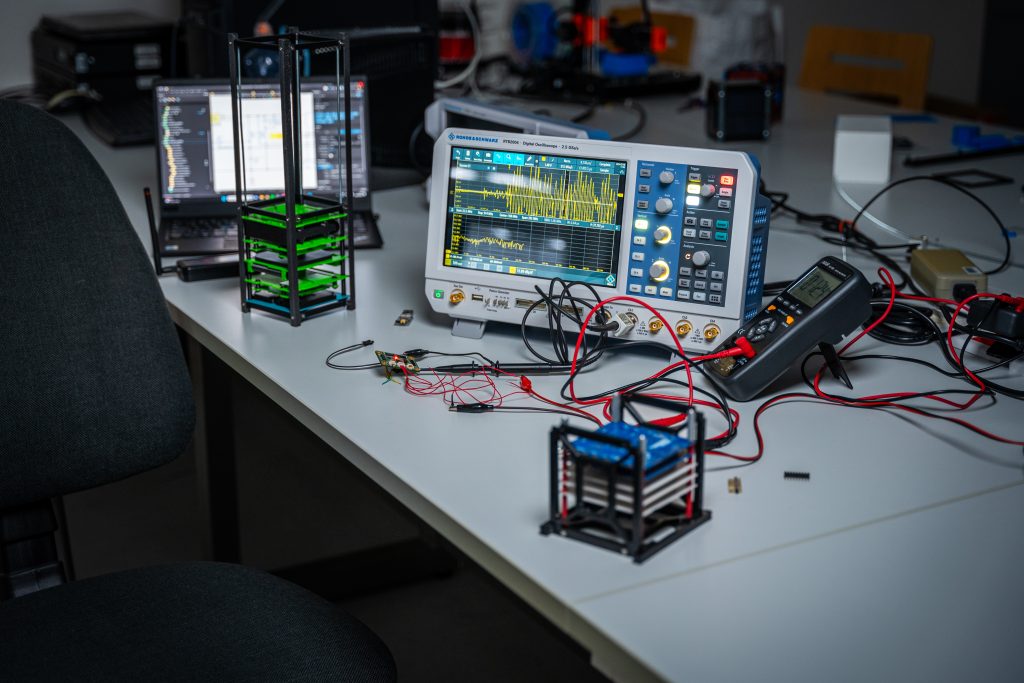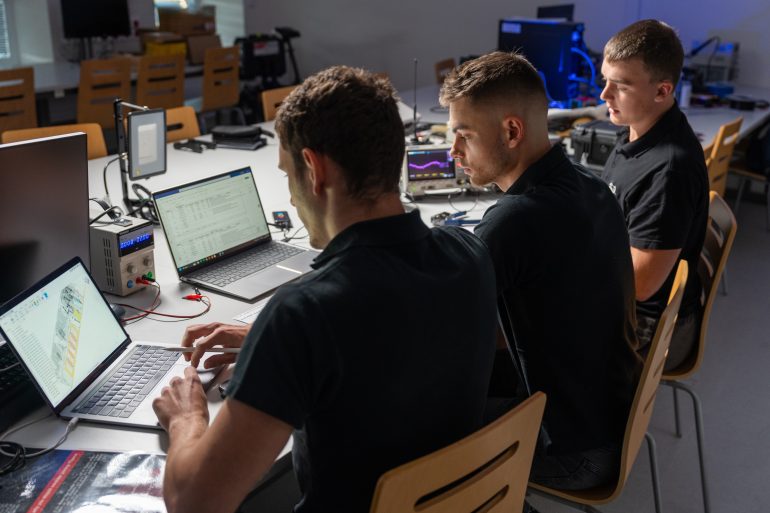The Faculty of Electrical Engineering and Communication Technologies at the Brno University of Technology has announced that it will double the number of places available on its Master’s programme in Space Applications from the next academic year, to 40 from the current 20. The decision comes in response to a critical shortage of skilled workers, who are crucial to the development of local companies in the space industry.
The space industry has been growing rapidly in South Moravia in recent years, and the Brno region can now be considered the centre of this industry in the Czech Republic. According to an estimate by the Brno Space Cluster, a local business association, space companies in the region employ 410 specialists and generate annual revenues of CZK 1 billion. With growing global demand for space technology, these companies have huge potential for further development and international expansion. However, they face a critical shortage of human resources that could hinder this growth.
“We currently have more than 55 vacancies in South Moravian space companies, which have hired about 120 new professionals in the last three years,” said Václav Havlíček, director of the Brno Space Cluster. “In order to fully exploit their potential and continue to grow, the companies would need to recruit at least 100 new qualified employees per year for the next five years. However, there is currently a shortage of these on the market.”
For these reasons, the Faculty’s management has decided to increase the capacity of its course, which is unique in the Czech Republic, from 20 to 40 students.

“One of the most strategic areas of the Brno University of Technology is education, research and development in the field of space technologies and applications,” said Ladislav Janíček, Rector of the Brno University of Technology. “The Faculty of Electrical Engineering and Communication Technology has been involved in this sector for decades, especially in satellite development. This is also where a unique Czech master’s degree in space applications was established. The Faculty of Mechanical Engineering is also involved in this implementation.The university also offers a master’s programme in Aerospace Engineering, which includes the design of space structures and the mechanics of space flight. BUT is developing educational capacities in space applications to maintain and strengthen Brno’s position as a centre of space innovation. It is a prestigious and high-quality programme that attracts students from the Czech Republic and abroad.”
“It is already a common practice for students to take paid internships at space companies in Brno during their studies,” said Tomáš Götthans, guarantor of the Space Applications master’s degree. “We also cooperate directly with the German Aerospace Centre and the European Space Agency (ESA), whose experts in the field come to give lectures.”
Students also learn valuable practical skills in the university’s YSpace student team, which recently won ESA support to launch its own satellite with the first Czech space biology mission, CIMER, focusing on the study of cyanobacteria in microgravity.
The South Moravian Innovation Centre (JIC) is also dedicated to promoting innovation and technology transfer in the region. Among other things, it runs the local branch of the European Space Agency Business Incubator (ESA BIC), which has already been used by almost 20 companies, and systematically supports the creation and development of new start-ups. One example is ZAITRA, whose founder Marek Marušin started his business while still a student. Today, his company develops advanced artificial intelligence software for satellites in orbit.
“One of our missions is to motivate students to become entrepreneurs and help them develop their ideas,” said Petr Chládek, director of JIC. “The space industry has a huge potential. We can see it, for example, in global investment trends. The more top experts there are, the more potential there is for innovation to be transferred from academia to practice, and thus for more globally successful start-ups. And that is our goal.”








